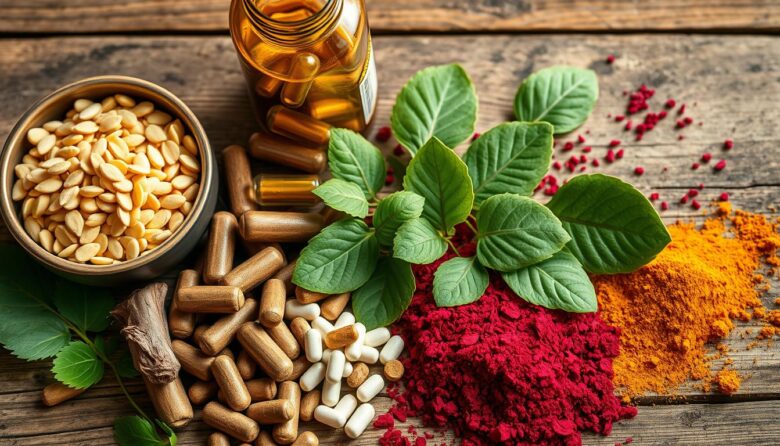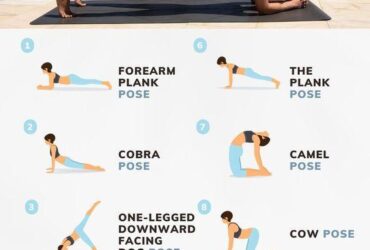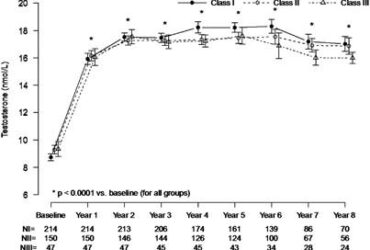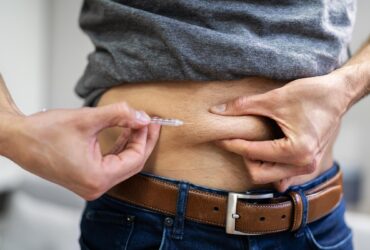Testosterone boosters are getting more popular among men. They aim to boost male hormone levels and improve health. These supplements mix different ingredients, with an average of 8.3 per product. Common ones include zinc, fenugreek, vitamin B6, Tribulus, and magnesium.
Interestingly, 90% of these supplements claim to boost testosterone. Also, 50% say they can improve libido. But, science shows a different truth. Only 24.8% of ingredients actually raise testosterone levels. Meanwhile, 10.1% might lower it.
Many supplements have too much of vitamins and minerals. In fact, 13 products have doses higher than safe levels for zinc, vitamin B3, and magnesium. This raises safety and effectiveness concerns.
As testosterone boosters grow in popularity, it’s key to be cautious. Consumers should talk to healthcare experts before using them. Knowing the science behind these ingredients helps make smart choices for health and wellness.
Understanding Natural Testosterone Production and Decline
Testosterone is the main male sex hormone. It’s key for a man’s health and happiness. But, as men get older, their testosterone levels naturally drop. Knowing about this decline and its signs is vital for staying healthy and full of life.
Age-Related Testosterone Changes
Testosterone in men usually hits its peak around age 19. Then, it starts to fall by about 1% to 2% each year after 30. By the 70s, testosterone levels can be 35% lower than in younger years. Boost your T here >>>
Signs of Low Testosterone Levels
- Decreased libido and sexual function
- Erectile dysfunction
- Increased body fat
- Loss of muscle mass and strength
- Reduced bone density
- Fatigue and low energy
- Mood changes, such as irritability or depression
- Fertility issues
Factors Affecting Testosterone Production
Age isn’t the only thing that affects testosterone. Other factors include:
- Health conditions: Obesity, diabetes, and sleep apnea can lower testosterone.
- Medications: Opioids, corticosteroids, and some antidepressants can harm testosterone production.
- Lifestyle choices: Too much alcohol, drug use, and stress can also lower testosterone.

It’s important for men to understand how testosterone changes with age. Knowing what affects it helps men stay healthy and feel good as they get older.
The Science Behind Testosterone Boosters
Testosterone boosters are not always backed by solid science. Some natural ingredients like fenugreek seed extracts and ashwagandha root might help raise testosterone levels. But, the real effect of these supplements is still up in the air. A study showed that only about 30% of people saw a rise in testosterone when using these boosters.
Testosterone levels can swing a lot, and boosters might have side effects. A 30-year-old man took a testosterone booster for 42 days and saw some liver issues and a small testosterone boost after the fourth round. Also, athletes using anabolic-androgenic steroids (AASs) in their 20s and 30s face serious health risks from long-term use.
Research on testosterone’s role in muscle strength is mixed. This means that testosterone booster effectiveness might not always lead to better physical performance or body shape.
Even though scientific evidence on testosterone boosters is mixed, making lifestyle and diet changes might be more effective. Men wanting to boost their testosterone should focus on managing stress, keeping a healthy weight, and getting enough zinc, magnesium, and boron.
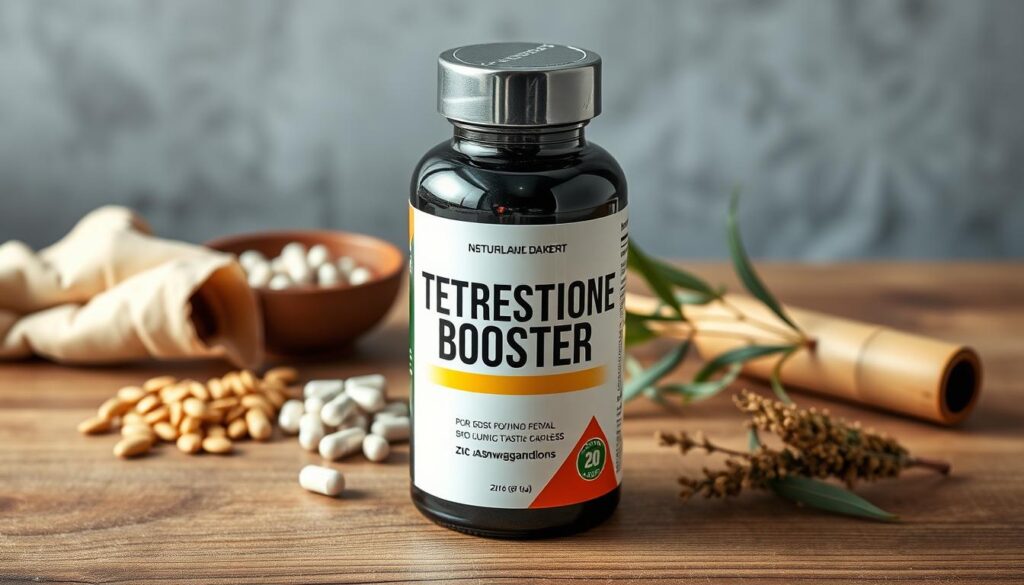
In short, the science on testosterone boosters is still growing. People should be careful with these supplements and talk to a doctor before using them. This way, they can find the best approach for their health and needs.
Essential Minerals for Testosterone Support
Keeping testosterone levels right is key for men’s health. Lifestyle and age changes matter, but zinc, magnesium, and boron help too. These minerals aid in making healthy testosterone.
Zinc’s Role in Hormone Production
Zinc is crucial for making testosterone. Research links zinc deficiency to low testosterone levels. Men need 11 milligrams of zinc daily. Enough zinc supports hormone and sperm health.
Magnesium and Testosterone Synthesis
Magnesium supplements boost testosterone health. It’s vital for testosterone making in the body. Keeping magnesium levels up helps testosterone work better.
Boron’s Impact on Free Testosterone
Boron also affects testosterone levels. Studies show it can raise free testosterone. This is good for men wanting to improve their testosterone.
But, too much of these minerals can harm. Always follow the right dose and get advice from doctors.
Key Herbal Ingredients in Testosterone Supplements
Certain herbal ingredients are known for their potential to boost testosterone levels naturally. Fenugreek, Tribulus terrestris, ashwagandha, and Eurycoma longifolia, or tongkat ali, are some of the most popular. These herbs have been used for their aphrodisiac and anti-aging properties in traditional medicine.
But, the scientific proof of their ability to increase testosterone is not strong. Let’s explore some of the best herbs for testosterone more closely.
- Fenugreek: Studies suggest that fenugreek extract can significantly boost testosterone in men. A 2020 review found that it can increase testosterone levels notably.
- Tribulus Terrestris: This herb is often marketed as a natural testosterone booster. But, the scientific evidence is mixed. Some studies show a positive effect, while others do not.
- Ashwagandha: This adaptogenic herb may support natural testosterone production. A 2019 study found that ashwagandha increased testosterone by 14.7% in overweight men aged 40-70 with mild fatigue.
- Tongkat Ali: Also known as Eurycoma longifolia, this herb is used in traditional medicine for its sexual function and libido benefits. But, the evidence for its testosterone-boosting effects is limited, and more research is needed.
While these herbs show promise, the scientific consensus on their effectiveness in boosting testosterone is not yet clear. Always consult with a healthcare professional before adding any herbal testosterone boosters to your routine.
The Power of Ashwagandha in Hormone Optimization
Ashwagandha is an ancient Ayurvedic herb that’s getting a lot of attention. It’s believed to help boost testosterone levels and improve hormone balance in men. Many studies have looked into how this natural adaptogen affects men’s health.
Clinical Studies on Ashwagandha
Studies on Ashwagandha and testosterone levels have given participants 300 mg to 5 g daily. A 2010 study with 150 men showed that 5 g of Ashwagandha root powder daily improved testosterone levels after 3 months. A 2015 study found that men taking 300 mg of Ashwagandha root twice a day saw a 96.2 ng/dL increase in testosterone. This was compared to an 18.0 ng/dL increase in the placebo group.
Recommended Dosage and Benefits
There’s no agreed-upon daily Ashwagandha dosage for testosterone optimization. However, studies have used between 300 mg and 5 g daily. A 2022 study gave adult males 300 mg of Ashwagandha twice daily. This led to higher testosterone levels and better sexual function compared to the placebo group. Ashwagandha also increases DHEA-S levels, a testosterone precursor, and improves sperm quality in some cases.
Safety Considerations
Ashwagandha is usually safe for up to 3 months. But, pregnant or nursing women, people with autoimmune or thyroid disorders, hormone-sensitive prostate cancer, liver issues, or taking certain medications should be cautious. Side effects can include stomach discomfort, drowsiness, diarrhea, and vomiting. It’s wise to talk to a healthcare professional familiar with Ayurvedic medicine for advice on using Ashwagandha safely and effectively.
Vitamin Complex for Testosterone Enhancement
Testosterone supplements often highlight the role of vitamins. But, the science on how these vitamins boost testosterone is not clear-cut. Let’s look at the key vitamins that support male hormone production.
Vitamin D is a promising vitamin for testosterone. Research shows that men with low vitamin D levels may see testosterone increases when they get enough. The daily vitamin D intake should be 600-800 IU, but some studies suggest up to 10,000 IU might be needed for some.
The B-vitamins, especially B6 and B12, are in many testosterone supplements. But, their direct effect on testosterone is not well-studied. B-vitamins are crucial for health, but their role in testosterone is not as clear.
| Vitamin | Role in Testosterone Production | Recommended Daily Intake |
|---|---|---|
| Vitamin D | May increase testosterone levels in men with severe deficiency | 600-800 IU (up to 10,000 IU for some individuals) |
| Vitamin B6 | Indirect support for testosterone synthesis | 1.3-1.7 mg |
| Vitamin B12 | Involved in overall health, but limited evidence for direct testosterone impact | 2.4 mcg |
Many testosterone supplements have high vitamin amounts. Always talk to a healthcare professional to find the right vitamin balance for you.
Fenugreek and D-Aspartic Acid Benefits
Two ingredients, fenugreek and d-aspartic acid (D-AA), are getting a lot of attention for boosting testosterone. These natural compounds have shown promise in studies. They could help men improve their hormonal health.
Research-Backed Evidence
Studies have looked into how fenugreek affects testosterone levels. One study found that men with low testosterone saw a 50% increase in free testosterone after taking fenugreek daily for 12 weeks. D-AA has mixed results, with some studies suggesting it boosts testosterone and others finding no effect.
A study of 60 men with fertility issues found that D-AA supplements increased sperm count. Also, 27% of their partners got pregnant during the study. But, other studies show that high doses of D-AA, like 6 grams a day, can lower testosterone levels.
Optimal Dosing Protocols
The best doses for fenugreek and D-AA are still being studied. Most studies use 3 grams of D-AA daily, but results vary in younger and middle-aged men. For fenugreek, a study found a 50% increase in free testosterone with 2.6 grams daily for 90 days, without safety issues.
The effects of these supplements can differ based on age, weight, and starting testosterone levels. More research is needed to guide safe and effective use of fenugreek and D-AA in testosterone boosters.
Safety and Regulatory Considerations
Understanding the safety and rules of testosterone booster supplements is key. Unlike drugs, the FDA regulations for herbs, supplements, and vitamins are less strict. This can lead to some supplements having too much zinc, vitamin B3, or magnesium.
Remember, testosterone booster safety is complex. Some ingredients might not mix well with medicines or could cause side effects, especially for those with health issues. Always talk to a doctor before starting any supplement to stay safe.
When looking at supplement quality, be careful and do your homework. Not all testosterone boosters are the same. Look for products that are tested by third parties, follow good manufacturing practices (GMP), and are open about what’s in them.
- Understand the FDA’s limited regulation of supplements compared to pharmaceuticals
- Be aware of potential ingredient levels that may exceed safe limits, such as zinc, vitamin B3, and magnesium
- Consult with a healthcare provider before starting any testosterone booster supplement regimen
- Prioritize supplement brands that are third-party tested, GMP-compliant, and transparent about their formulations
By knowing about the safety and regulatory considerations of testosterone boosters, you can make better choices. This helps keep your health and well-being in check.
Common Side Effects and Interactions
Testosterone boosters are generally safe when used correctly. But, they can sometimes cause side effects or interact with other drugs. It’s important to know about these risks and talk to a doctor before starting any supplements.
Potential side effects of testosterone boosters may include:
- Nausea, cramps, and headaches
- Reduced immune function
- Increased blood pressure
- Liver injury with symptoms like right upper belly pain, loss of appetite, nausea, and yellowing of the skin or eyes
- Mood changes such as irritability and hostility
- Prolonged or painful erections
- Sleep apnea symptoms, including loud snoring, gasping during sleep, and daytime sleepiness
- Swelling of the ankles, hands, or feet
- Mental health changes, including thoughts of suicide, worsening mood, and depression
Testosterone boosters may also interact with certain medications, including:
- Diabetes medications
- Blood clot medications like warfarin
- Oxyphenbutazone
- Propranolol
- Steroid medications such as prednisone or cortisone
Talking to your doctor about possible interactions is key. They can help with the right dosage and timing. Also, remember to store supplements safely and follow usage guidelines, especially for women and athletes.
| Recommended Storage Conditions | Restrictions on Use |
|---|---|
|
|
Understanding Recommended Dosages and Timing
The right amount of testosterone booster dosage can change a lot. It depends on the supplement’s ingredients and how it’s made. For injections, the usual dose is 75 to 100 mg per week. Gels usually give 50 to 100 mg of testosterone every day.
But, bodybuilders might take 200 to 400 mg per week. This is riskier but can help them build muscle.
For [supplement timing], taking it every day is best. Some supplements need a cycle to work well and avoid side effects. Taking them with meals can help your body absorb them better.
Daily Intake Guidelines
- Standard TRT dosages for injections range from 75 to 100 mg per week.
- TRT dosages for gels typically vary between 50 to 100 mg daily.
- Women’s TRT dosages are lower, usually in the range of 1 to 2 mg per day.
- Higher dosages of 200 to 400 mg per week are common in bodybuilding but come with increased health risks.
- Testosterone patches deliver approximately 4 to 6 mg of testosterone daily.
Cycling Protocols
Some testosterone boosters need to be cycled. This means using them for a while and then taking a break. Or, you might change the dose based on how you react and lab results.
Best Times for Supplementation
When to take testosterone boosters isn’t set in stone. But, many say to take them every day. Taking them with meals can help your body use them better. It’s also good to get regular blood tests to check your hormone levels.
| Dosage Level | Weekly Testosterone Injection Dosage | Daily Testosterone Gel Dosage |
|---|---|---|
| Beginner | 75 to 100 mg | 50 to 100 mg |
| Intermediate | 100 to 150 mg | Not Applicable |
| Advanced | 150 to 200 mg | Not Applicable |
Always talk to a doctor to find the right [testosterone booster dosage] and [supplement timing] for you. Follow the instructions on the product. Be aware of any side effects or interactions.
Testosterone therapy and depression
Conclusion
Some ingredients in testosterone boosters, like zinc and magnesium, might help with natural testosterone. But, the real effect of these supplements is still up in the air. Many products have too much of vitamins, minerals, and artificial stuff. This could harm your health.
For men wanting to keep their hormone levels in check, a natural approach might work better. Eating well, exercising, sleeping enough, and managing stress are key. If you think you have low testosterone, see a doctor for the right help.
Combining science-backed supplements with a healthy lifestyle can boost testosterone in middle-aged men. Knowing how testosterone changes with age and how certain foods and herbs help is important. This way, men can make smart choices to support their health and well-being.

